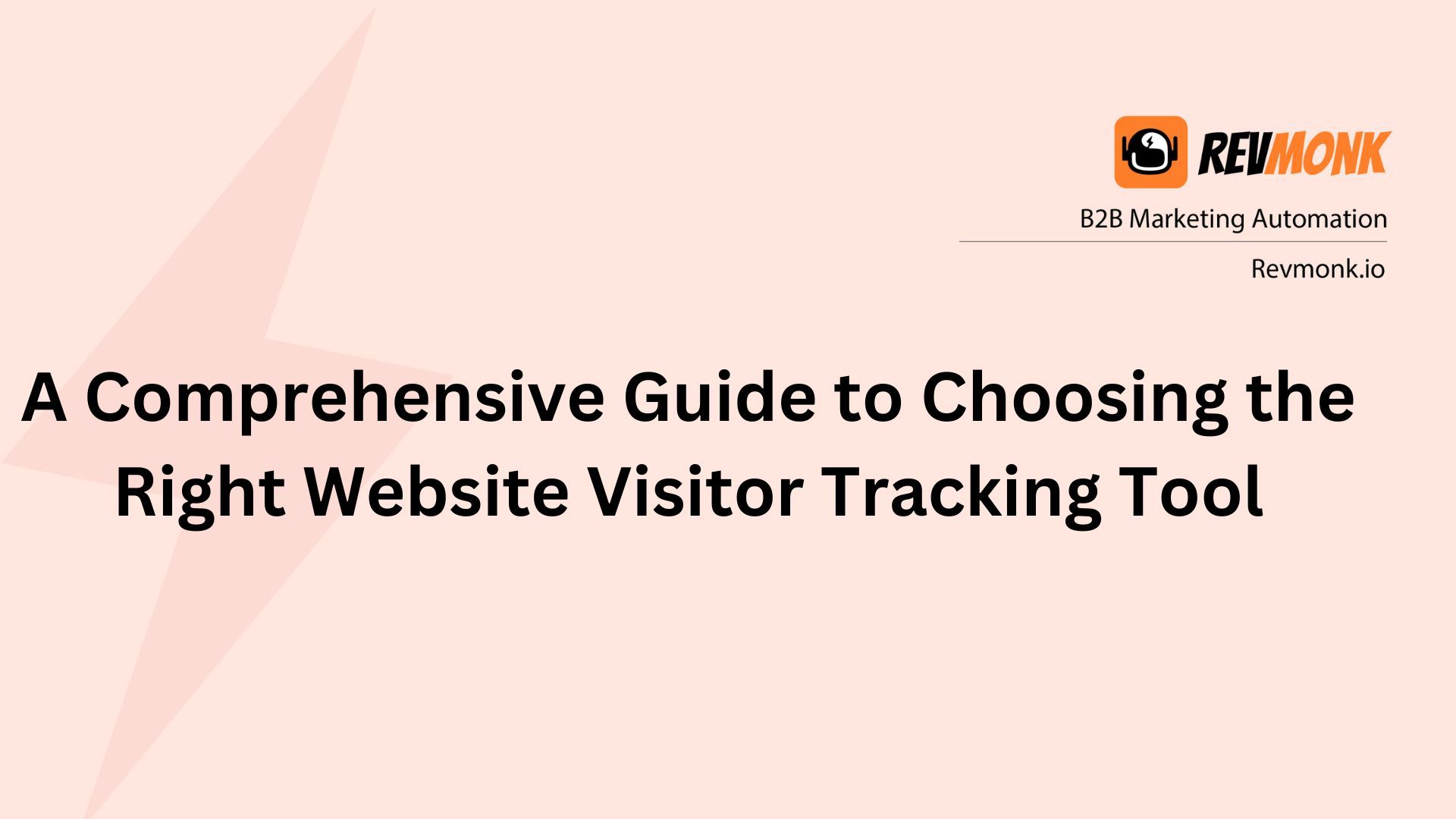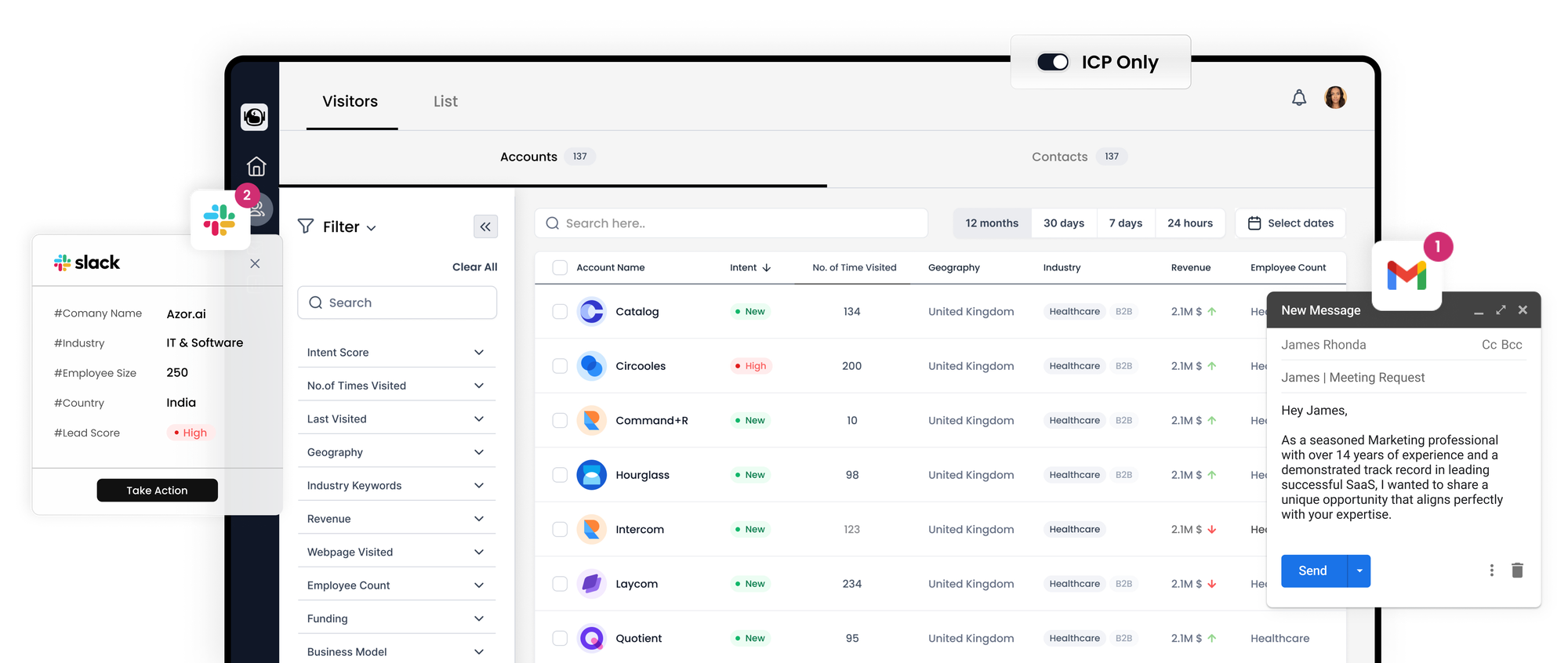A Comprehensive Guide to Choosing the Right Website Visitor Tracking Tool

In the digital age, understanding how users discover your website and convert into leads is crucial for business growth. Website visitor tracking tools play a pivotal role in achieving this by providing valuable insights into user behavior and the effectiveness of your marketing efforts. However, selecting the right website visitor tracking tool can be a daunting task, given the plethora of options available, each with its unique benefits, features, and pricing structures. To help you make an informed decision, we've compiled a list of website visitor tracking tools that are tailored to meet your specific needs.

What is Website Visitor Tracking Software?
Website visitor tracking software enables businesses to identify and monitor individuals visiting their websites, gaining insights into their interactions and behaviors. These tools allow you to track individual users, map their journeys, and gain a deeper understanding of your leads and customers.
Typically, website visitor tracking software operates by installing a script on your website, collecting essential information about visitors. This includes the marketing channels they used to discover your site, the pages they viewed, and their actions on your site.
While there are several website visitor tracking tools available, one of the most widely used analytics tools for visitor tracking is Google Analytics. It provides valuable aggregated data about your website's performance and visitor count. However, it falls short in offering insights into individual user journeys, which are crucial for understanding unique customer interactions with your website and campaigns.
Types of Website Visitor Tracking Tools
Website visitor tracking tools can be broadly categorized into two types:
1. Visitor Level Tracking Tools
These tools offer a holistic view of individual customer journeys. They allow businesses to track the sources of visitors and how they convert into leads. If you want to monitor unique customer journeys across various channels, visitor level tracking tools are the ideal choice.
2. Visitor Behavioral Tracking Tools
These tools focus on tracking visitors' specific interactions and behaviors as they navigate your website. They provide insights into user experiences and behaviors. If you aim to understand how users engage with your site during their visits, visitor behavioral tracking tools are suitable.
What to Look for in Website Visitor Tracking Software?
When choosing the right website visitor tracking software for your business, consider the following factors:
Affordability
Ensure that the tool fits within your budget. Compare prices and assess the cost-effectiveness of prospective tools, considering additional features, integrations, and the number of users.
Data Integration
If your tech stack includes multiple tools, opt for a solution that allows you to combine data from various sources into a unified view for comprehensive analysis.
Offline Interaction Tracking
If your lead conversion involves phone calls, select a tool capable of tracking both online and offline interactions for a complete picture of lead generation.
Now, let's explore some popular website visitor tracking tools in each category:
Website Visitor Level Tracking Tools
1. Ruler Analytics
Ruler Analytics offers visitor-level marketing attribution, tracking visitors across multiple sessions and traffic sources. It provides insights into individual customer journeys, allowing for accurate ROI calculations. Pricing starts at £199 per month.
2. Attribution App
This tool offers visibility into touchpoints, ad clicks, and conversions. It correlates ad spend with specific users or accounts.
3. CallRail
CallRail is a call tracking solution that assigns unique numbers to website visitors, enabling businesses to track their calls and associated campaigns.
4. CANDDi
CANDDi tracks website visitors' activities, such as page visits, video views, and downloads, while also identifying visiting companies.
5. HubSpot
HubSpot's CRM system includes website tracking functionalities, but it's primarily available to enterprise accounts.
6. Leadfeeder
Leadfeeder identifies visiting companies and their referral sources, helping populate your CRM with potential sales leads.
7. Visual Visitor
Visual Visitor's tool captures real-time data, including company names, email addresses, and phone numbers of visiting businesses.
Website Visitor Behavioral Tracking Tools
1. Crazy Egg
Crazy Egg offers click heatmaps, scroll heatmaps, movement heatmaps, and attention heatmaps to explore in-page interactions.
2. Hotjar
Hotjar provides heatmaps for click, tap, scroll, and mouse movements, aiding in improving user experience and conversion rates.
3. Inspectlet
Inspectlet monitors website visitors in real-time, offering visual interpretations of user interactions and the option to record visitor sessions.
4. Mouseflow
Mouseflow provides heatmaps and journey recordings while offering insights into why users abandon forms.
In conclusion, selecting the right website visitor tracking tool is essential for gaining insights into user behavior, optimizing marketing efforts, and enhancing the overall user experience. By considering your business goals, budget, and specific tracking needs, you can choose the tool that best aligns with your objectives. Whether you opt for visitor level tracking or behavioral tracking, these tools empower you to make data-driven decisions and drive business growth.
